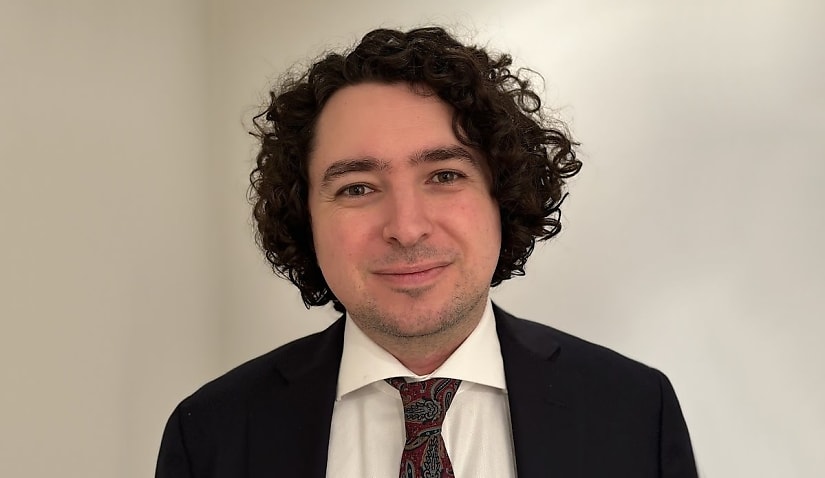A legal counsel for a major national telco has challenged external providers to think differently on how they charge for their services, if they are to provide an optimal experience as a panel member.

Ahead of the inaugural Partner Summit 2024, Telstra legal counsel and legal chapter lead David Vallance said that billing arrangements have lacked innovation since law firms were established.
“And from time to time, you’ll see the ‘all-you-can-eat deal’ where there’s a broad agreement on costs for an area of law, or a retainer model for repeated advice work, and everything gets billed under the same matter. Other than that, in my experience, there’s been very little in the way of innovation when it comes to fee arrangements.”
Vallance has challenged law firms to consider different models to charge organisations for their services, while offering increased value and reducing the administrative burden.
“Anything that reduces time taken to complete tasks and lets us know we’re getting what we paid for in our work would be good, whether that’s improvements in the time we need to spend on reviewing invoices or narratives on matters,” he said.
During a panel session at the summit, Vallance will provide tips on how law firms can become the chosen external firm and offer innovative billing options for in-house legal teams.
He will be joined by moderator and former federal MP Julia Banks, PayPal Australia director of legal Elizabeth Briggs, Domain chief legal and transformation officer Catriona McGregor, and ASX Limited group general counsel and company secretary Johanna O’Rourke.
He said his in-house legal team is eager for his external panel to embrace artificial intelligence tools to improve the quality, speed, and cost of service delivery.
“We’d be keen to see how we could benefit from this, including law firms providing more prompt, bespoke advice, or reducing costs on work that would ordinarily be done by a human,” he said.
Telstra’s in-house legal team is typically either on a fixed-fee or hourly billing model, but Vallance said receiving accurate estimates from law firms could potentially do away with both models.
“This is because if the estimates are accurate, we know what to expect,” Vallance said.
“It’s when things get beyond that estimate that it can start to feel a little uncomfortable, particularly in a world where we’re focused on prioritisation and monitoring our external spend. Meeting those expectations is key and saves us having difficult conversations within the business.”
Vallance also said that keeping advice practical is key.
“Our in-house team is extremely high-performing – we operate with deep legal understanding of our industry, and the fundamentals are very well trodden. The quality of advice can start to taper if firms focus on underlying principles rather than the commercial outcome,” Vallance said.
“We don’t need background research and context. We want firms to get to the point and provide practical answers so we don’t have to wade through the fundamentals.”
While cost is obviously a significant factor, overall value and an understanding of the business is critical. Vallance urged law firms to consider the organisation’s requirements, understand its risk profile, and provide clear, specific advice that is ready for immediate use.
“We want to avoid that back and forth with the external team unless it’s necessary,” he said. “Take the time to get to know our business and our customers – and us as lawyers – so that we can provide the best and most practical advice for us.”
“We also want to be able to reuse the advice if our organisation faces similar situations in the future. We shouldn’t have to repeatedly ask similar questions with slight nuances and repeatedly pay for the intellectual property that’s behind that advice.”
Telstra’s in-house team typically briefs out for either capability or capacity reasons. It seeks subject matter expertise on complex, high-risk matters or matters on which they do not possess specialist knowledge.
“What we really want from that expertise is value – and in particular, we want to find ways to bring that knowledge into our team,” he said.
“For example, is there an opportunity to be mentored by law firm partners? Or, could we give our legal team the opportunity to shadow them or engage with them in different ways that aren’t always on a request-for-advice basis?”
Vallance also suggested “reverse secondments”, where more junior members of the in-house legal team spend time in a law firm to build skills and knowledge they can bring back to the business.
He said: “We want to see firms innovating so we can latch on to that innovation, reduce spend, derive value and deliver better to our internal clients.”
To hear more from David Vallance about what general counsel look for in their external law firm provider, come along to the Partner Summit 2024.
It will be held on Thursday, 20 June, at The Star, Sydney.
Click here to buy tickets and don’t miss out!
For more information, including agenda and speakers, click here.
This summit is produced by Captivate Events. If you need help planning your next event, email director Jim Hall at